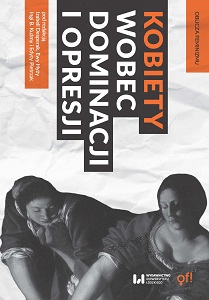Dzień nasz powszedni… literackie dyskursy najnowszej prozy polskiej, głos mają kobiety
The subject of the article is the image of everyday life, both home and social, in a selected Polish prose written by women
Author(s): Beata Rynkiewicz
Subject(s): Gender Studies, Sociology of Culture
Published by: Wydawnictwo Uniwersytetu Łódzkiego
Keywords: Everyday life; feminima perspective; discrimination; oppression; female authors
Summary/Abstract: The subject of the article is the image of everyday life, both home and social, in a selected Polish prose written by women. The tekst emphasizes the special role of narrative created from a strictly feminine perspective. The discussed literature describes important problems such as wiolence, discrimination or oppression in a various shades, presenting the “usual” confrontation of the heroine with the existing reality as in the case of Jolanta’s creation, the heroine of Sylwia Chutnik, a sad and helpless resident of Żerania (Warsaw). On the other hand, Kaja Malanowska tells us about little craze of everyday life. Unfortunately, this madness leads the heroine to a total crisis, althought there are no such reasons. Like the protagonist of the novel Fifty (Pięćdziesiątka) of Inga Iwasiów, the problem of alcoholism is raised here. The absurdities of everyday life are described by Zofia Papużanka in Szopka. This story depicts a portrait of a contemporary Polish family as it turns out, deeply dysfunctional.The focus is on women’s fate, oppression, the nature of which is exhibited in various ways by contemporary authors, also in the area of non-fiction in the texts analyzed here: Marta Abramowicz The nuns leave quietly (Zakonnice odchodzą po cichu) and Marta Dzido Solidarity of women (Solidarność kobiet). It is an atempt to indicate the unusual role of the creativity of female authors, in which feminist literary discourses contribute to the creation of broadly understood subjectivity of women.
Book: Kobiety wobec dominacji i opresji
- Page Range: 91-103
- Page Count: 13
- Publication Year: 2019
- Language: Polish
- Content File-PDF

